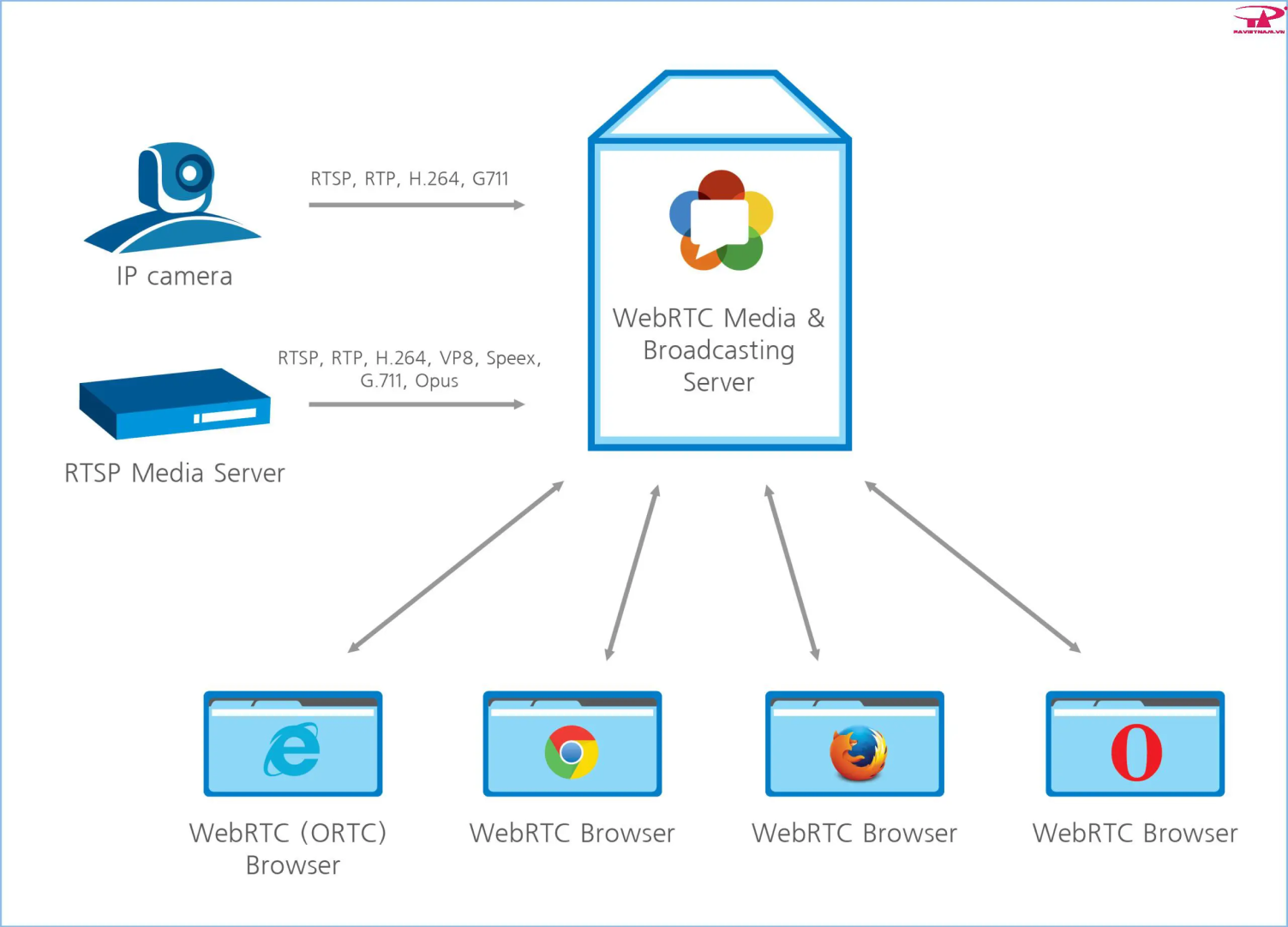In today’s digital landscape, online privacy is a constant battle. You might use a VPN or a proxy to mask your IP address, believing you’re browsing anonymously. However, a hidden vulnerability called a WebRTC leak could be undermining all your security efforts, exposing your real IP address to the world. For MMO professionals, digital marketers managing multiple accounts, and businesses relying on automation, this isn’t just a privacy issue – it’s a critical operational risk. This article will dissect what a WebRTC leak is, why it’s dangerous, and how you can fortify your digital fortress against it.
1. What is WebRTC Anyway?
Before we dive into the leak, let’s understand the technology behind it. WebRTC, which stands for Web Real-Time Communication, is a powerful open-source technology embedded in most modern browsers like Chrome, Firefox, and Safari. Its primary function is to enable direct peer-to-peer (P2P) communication right from the browser window without needing any extra plugins or software. Think of the video and voice call features on platforms like Google Meet, Discord, or WhatsApp Web – many of these are powered by WebRTC. It allows for seamless, real-time sharing of audio, video, and data directly between two users.

2. Understanding the WebRTC Leak
The very feature that makes WebRTC so efficient – direct connection – is also its greatest weakness. To establish this direct link, the two browsers need to know each other’s true IP addresses. WebRTC uses a process called Interactive Connectivity Establishment (ICE) to discover and share these addresses.
A WebRTC leak occurs when your browser inadvertently exposes your actual public and local IP addresses through these WebRTC requests, even when you are connected to a VPN or proxy. Essentially, while you’ve built a secure, encrypted tunnel for your main internet traffic via the VPN, WebRTC creates a separate, less secure “side door” that completely bypasses it. For a marketer running multiple ad accounts or an MMO player managing several characters, this is a disaster. It means the platforms you’re interacting with can see your true IP, potentially linking all your accounts and leading to bans or restrictions.
2.1. Why is a WebRTC Leak So Dangerous?
- IP Address Exposure: It defeats the primary purpose of using a VPN or proxy, revealing your true geographic location and identity to websites, advertisers, and potential malicious actors.
- Compromised Anonymity: For users in the MMO and digital marketing fields, managing multiple accounts from a single IP is a red flag for many platforms. A WebRTC leak can instantly de-anonymize your entire operation, linking all profiles back to a single source.
- Targeted Attacks: A leaked IP address can make you a target for various cyber threats, including Distributed Denial of Service (DDoS) attacks or targeted hacking attempts.
- Bypassing Security Tools: It renders many privacy tools ineffective, creating a false sense of security while your most critical identifier is openly broadcast.
3. How to Check if You Have a WebRTC Leak
Fortunately, detecting a WebRTC leak is straightforward. Numerous free online tools can perform a quick check. Here’s a simple process:
- Connect to your VPN or Proxy: Make sure your security tool is active.
- Visit a Testing Website: Go to a reputable testing site like BrowserLeaks.com or ipleak.net.
- Analyze the Results: The test will show the IP addresses detected via WebRTC. If you see your actual home or office IP address listed alongside your VPN’s IP, you have a leak.
4. Fortifying Your Defenses: How to Prevent WebRTC Leaks
Once you’ve identified a leak, you need to plug it. There are several ways to do this, ranging from simple browser tweaks to more robust hardware solutions.
4.1. Disabling WebRTC in Your Browser
This is the most direct method, though it may break websites that rely on WebRTC for communication features.
- Mozilla Firefox: Type
about:configinto the address bar, search formedia.peerconnection.enabled, and double-click it to set the value tofalse. - Google Chrome: Chrome doesn’t have a simple switch to turn off WebRTC. The most effective method is using a browser extension.
- Safari: Go to Preferences > Advanced and check “Show Develop menu in menu bar.” Then, in the new Develop menu, navigate to WebRTC and uncheck “Enable Legacy WebRTC API.”
4.2. Using Browser Extensions
For Chrome users and others who prefer a less technical approach, several extensions can effectively manage and block WebRTC leaks. Popular choices include:
- WebRTC Network Limiter: An official Google extension that doesn’t completely block WebRTC but controls its settings to prevent IP leaks.
- uBlock Origin: While primarily an ad blocker, it includes an option to block WebRTC IP address leakage in its advanced settings.
4.3. Choosing a VPN with Built-in Leak Protection
Many top-tier VPN providers are aware of the WebRTC issue and have integrated leak protection directly into their applications. When choosing a VPN, ensure that “WebRTC leak protection” is a listed feature.
5. The Ultimate Solution: A Hardware-Level Defense with a Router Proxy
While the methods above are effective for a single device, they become cumbersome and unreliable for professionals managing complex setups like a box phone farm or a suite of marketing devices. Configuring each browser on every phone or computer is inefficient and prone to error. This is where a hardware-level solution demonstrates its unmatched superiority.

At GenFarmer, we understand that robust security and seamless automation are non-negotiable. Our Router Proxy is engineered to provide an ironclad defense against IP leaks for your entire network.
Instead of fighting WebRTC leaks on a browser-by-browser basis, the GenFarmer Router Proxy manages all internet traffic at the source. By configuring your desired proxy (like a 4G or residential proxy) directly on the router, every device connected to it—whether it’s a PC, a laptop, or an entire phone farm—has its IP masked and protected. This creates a unified, secure environment where WebRTC leaks are neutralized before they can even occur, ensuring the integrity and anonymity of your entire operation.

Conclusion
A WebRTC leak is a serious, often overlooked, flaw that can completely compromise your online privacy and operational security. While browser-based fixes and capable VPNs offer a good first line of defense, they are often insufficient for the demands of serious MMO players, digital marketers, and businesses. True security requires a foundational solution that protects your entire network without fail.
Don’t let a browser vulnerability dictate the success of your projects. Take control of your digital identity from the network level up. If you’re ready to build a truly secure and efficient automation ecosystem, the expert team at GenFarmer is here to help.











